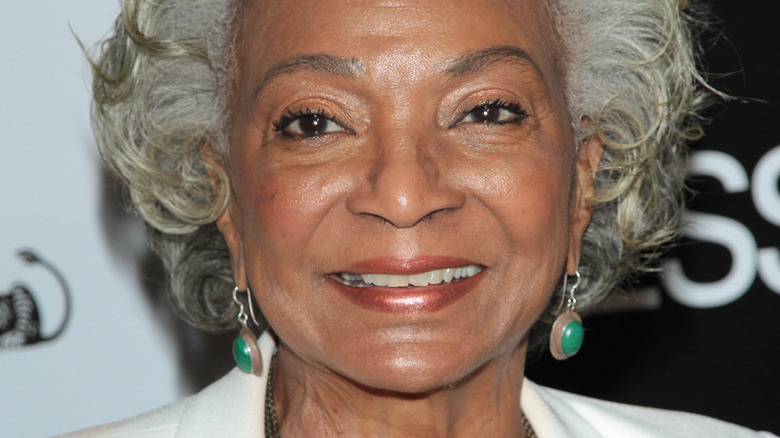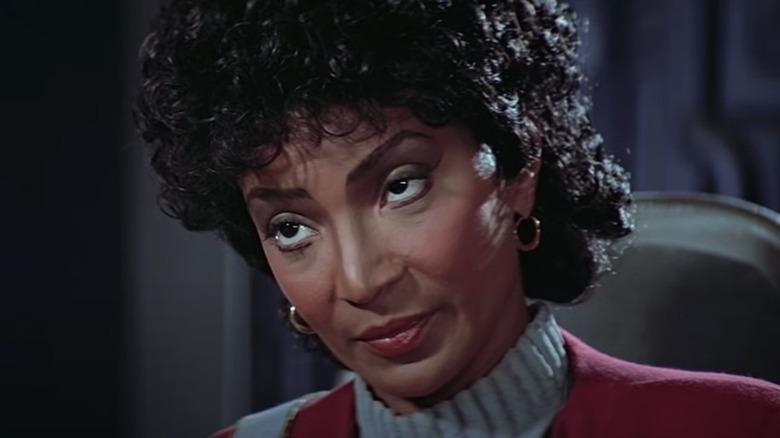In Nichelle Nichols' Career, One Role Stands Above The Rest
Very few people could have predicted what an unimaginable impact the original "Star Trek" series would have on the world as we know it today. The show's creator, Gene Roddenberry, once described his desire to make a "Gulliver's Travels" of the future, mixing standalone episodes that explored wild and bizarre themes with a recurring cast of characters, according to Time Magazine. And Nichelle Nichols, who played Lt. Uhura, proved to be a vital part of the show's impact on science fiction — and pop culture at large.
Before "Star Trek," Nichols had dabbled in a few bit parts starting in the late 1950s. Less than seven years later, she was cast as Lt. Nyota Uhura, the chief communications officer of the USS Enterprise. Long after that, a good portion of her career was spent reprising that very role. She did step outside of that comfort zone to do voice acting for various popular cartoon shows (especially "Gargoyles" and "Batman: The Animated Series") as well as voicing herself in cartoons like "The Simpsons" and "Futurama." She also did some live-action work, including playing Nana Dawson on "Heroes," Lucinda Winters on "The Young and the Restless," and even a fun little cameo in "Sharknado 5: Global Swarming."
Without question, though, there's one role of hers which towers above the rest as far as fame, prestige, and its impact on society.
Nichols' Lt. Uhura is a sci-fi icon
That role shouldn't surprise you, though. Because Lt. Uhura is an icon.
Yes, Nichols enjoyed many different roles throughout her career. But there's no denying that Uhura is both her most well-known and impactful role. After the original series was canceled on NBC, she reprised the part for the short-lived animated series, seven films, three video games, and more. Her role as Uhura wasn't just important to the entertainment industry, either. It was important to the culture in the US at the time, too, where the ahead-of-its-time inclusiveness and idealism of "Star Trek" stood out from nearly everything else on TV. Keep in mind, the original series played in the 1960s, at the height of the civil rights movement, and Uhura's role as an educated Black woman in a position of power on a starship — amid a culturally diverse crew — was unheard of, at the time. Just that simple act of representation was so influential for young girls of the 1960s that Martin Luther King Jr. himself — a fan of the series, whom Nichols' said told her that "Star Trek" was the only show he allowed his kids to stay up and watch at night — actually made a point to commend her work, and convinced her to stay on the series when she considered leaving after the first season (via NPR).
Thanks to her work as Uhura, Nichols was the first Black American to place her handprints in the cement outside the world-famous Grauman's Chinese Theatre, and according to her National Space Society profile, she proved to be an important figure in NASA's efforts to diversify, eventually earning NASA's Public Service Award.

